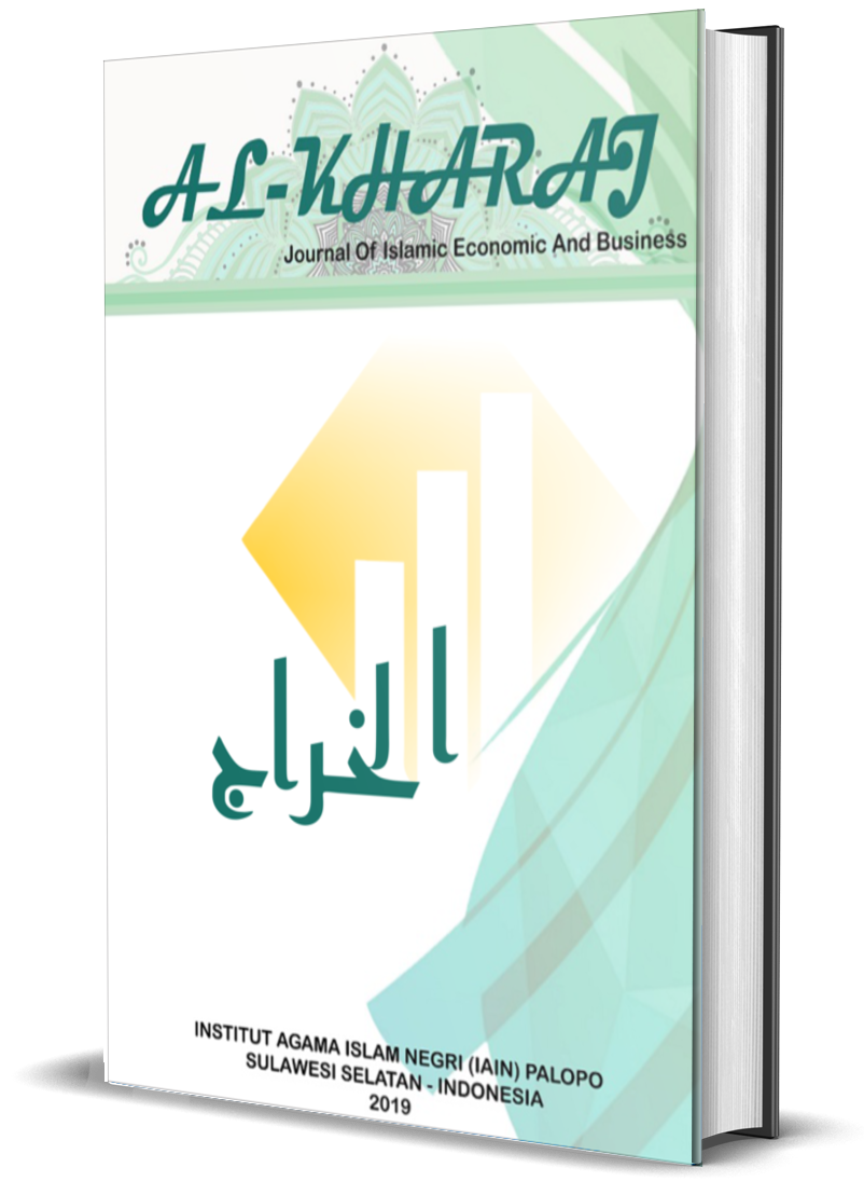Employee Engagement as a Moderating Variable of the Influence of Resonant Leadership on Employee Performance
DOI:
https://doi.org/10.24256/kharaj.v7i3.7880Keywords:
Employee Engagement, Resonant Leadership, Employee PerformanceAbstract
This research is a quantitative study with an explanatory approach. The data used in this study is primary data obtained by the researcher from 335 Mandala Finance employees spread throughout Indonesia. The data obtained by the researcher was analyzed using the smart PLS 4.0 analysis tool. The result in this article show that The first hypothesis in this study aims to determine whether Resonant Leadership Style can have a positive relationship and a significant influence on Employee Performance variables. This is because the P-Values in this article are positive and have a value below the 0.05 significance level, namely 0.003. These results indicate that Resonant Leadership Style can make employees more obedient, more compliant, company targets and visions can be easily achieved, can make the company stable, and ultimately can improve Employee Performance.. However, the results in this study show even more significant results. The researchers believe this is because the selection of Resonant Leadership Style as an independent variable is different from the five studies above which only used General Leadership Style as an independent variable. In addition, the second hypothesis in this study can also be accepted because the P-Values are positive and below the significance level of 0.05, which is 0.000, which is more significant than direct testing. Based on this, it can be concluded carefully that employee involvement can also help and even strengthen the influence of the Employee Involvement variable on Employee Performance because employees who are increasingly involved in company activities can make employee skills increase so that if this is accompanied by a Resonant Leadership Style, it can make Employee Performance even more significantly increase.
References
Amin, M. H. (2018). Kapasitas Sumber Daya Manusia dan Pemanfaatan Teknologi Informasi Konsekuensinya Pada Kinerja Karyawan. Gramedia Pustaka Utama.
Depitra, P. S., & Soegoto, H. (2018). Pengaruh Gaya Kepemimpinan Terhadap Kinerja Karyawan. Majalah Ilmiah UNIKOM, 16(2), 185–188. https://doi.org/10.34010/miu.v16i2.1361
Dien Sandra Rosuliana, Afira Arum Salsabila, Rita Amelia, & Riyan sisiawan Putra. (2022). Pengaruh Gaya Kepemimpinan Dan Kepuasan Kerja Terhadap Kinerja Karyawan Pt. Nutrifood Indonesia Di Surabaya. EKOMA : Jurnal Ekonomi, Manajemen, Akuntansi, 2(1), 190–194. https://doi.org/10.56799/ekoma.v2i1.1159
Erman, N., & Fahroby, A. (2022). Pengaruh Gaya Kepemimpinan Terhadap Kinerja Karyawan Pada Pt. Rusindo Expertiza Inspekciya Pekanbaru [INSTITUT AGAMA ISLAM NEGERI SURAKARTA]. In MAPAN: Jurnal Manajemen …. https://jurnal.institute-ehmri.ac.id/index.php/mapan/article/view/108%0Ahttps://jurnal.institute-ehmri.ac.id/index.php/mapan/article/download/108/85
Fahmi Kamal. (2019). PENGARUH GAYA KEPEMIMPINAN TERHADAP KINERJA KARYAWAN (Studi Kasus : PT Agung Citra Tranformasi). Jurnal Ilmiah Akuntansi Dan Manajemen (JIAM), 15(2), 38–49.
Fiorincia, & Widayati, N. (2020). Pengaruh Gaya Kepemimpinan , Beban Kerja , Dan Job Insecurity Terhadap Turnover Intention Karyawan. Jurnal Ilmu Manajemen, 1(1), 1–7.
Ghozali, I. (2016). Aplikasi analisis multivariete dengan program (IBM. SPSS). Univrsitas Dipenogoro.
H, M. (2021). PENGARUH GAYA KEPEMIMPINAN TERHADAP KINERJA PEGAWAI DI KANTOR DINAS KESEHATAN KABUPATEN PINRANG. UNIVERSITAS HASANUDDIN MAKASSAR.
Hair. (2010). Multivariate Data analysis, Seventh Editions. New Jersey.
Handoko. (2010). Manajemen Personalia & Sumberdaya Manusia. BPFE UGM.
Marwansyah. (2012). Manajemen Sumber Daya Manusia. Alfabeta.
NIEL, H. M. (2013). PENGARUH GAYA KEPEMIMPINAN TERHADAP KINERJA PEGAWAI PADA DINAS PERHUBUNGAN KOTA MAKASSAR [UNIVERSITAS ISLAM NEGERI (UIN) ALAUDDIN MAKASSAR]. In Skripsi. https://repository.ung.ac.id/skripsi/show/931409087/pengaruh-gaya-kepemimpinan-terhadap-kinerja-pegawai-pada-perpustakaan-daerah-kabupaten-gorontalo.html
Nurahman, N. (2022). Pengaruh Motivasi Kerja Dan Gaya Kepemimpinan Terhadap Kepuasan Kerja Serta Dampaknya Pada Kinerja Pegawai Kantor …. SEIKO : Journal of Management & Business, 5(1), 356–371. http://repository.univ-tridinanti.ac.id/5423/%0Ahttp://repository.univ-tridinanti.ac.id/5423/6/Tesis Bab 1.pdf
Prihartono, P., Theresia, T., & Mayangsari, S. (2019). Pengaruh Integritas, Objektivitas, Dan Kompetensi Auditor Internal Terhadap Efektivitas Audit Internal Dengan Gaya Kepemimpinan Demokrasi Sebagai Variabel Moderasi Pada Inspektorat Jenderal Kementerian Dalam Negeri. Jurnal Magister Akuntansi Trisakti, 5(1), 63–88. https://doi.org/10.25105/jmat.v5i1.5077
Rati Wulandari. (2019). PENGARUH GAYA KEPEMIMPINAN TERHADAP KINERJA KARYAWAN DENGAN LOCUS OF CONTROL SEBAGAI VARIABEL MODERATING. مجلة العربية, 2(5), 255. ???
Rokib, M. N., & Santoso, D. (2018). Pengaruh Gaya Kepemimpinan Partisipatif Dan Komunikasi Organisasi Terhadap Kinerja Karyawan Melalui Kepuasan Kerja Sebagai Variabel Intervening. Jurnal Riset Ekonomi Dan Bisnis, 11(2), 108. https://doi.org/10.26623/jreb.v11i2.1080
Santoso, P. B., Tukiran, M., Hyun, C. C., Wijayanti, L. M., Asbari, M., & Purwanto, A. (2020). Review Literatur: Pengembangan Sumber Daya Manusia dan Pendidikkan dalam Rangka Meningkatkan Pertumbuhan Ekonomi. Journal of Engineering and Management Science Research (JIEMAR), 1(2), 276–285. https://journals.indexcopernicus.com/search/article?articleId=2661001
Sarstedt, M., M. Ringle, C., Smith, D., Reams, R., & Hair Jr, J. F. (2014). Partial least squares structural equation modeling (PLS-SEM): A useful tool for family business researchers. Journal of Family Business Strategy, 5(1), 105–115.
Sofyandi, H. (2008). Manajemen Sumber Daya Manusia.
Tanjung*, A., & Frinaldi, A. (2023). Pengaruh Kepemimpinan terhadap Kepuasan Kerja. JIM: Jurnal Ilmiah Mahasiswa Pendidikan Sejarah, 8(2), 506–518. https://doi.org/10.24815/jimps.v8i2.24713
Downloads
Published
How to Cite
Issue
Section
Citation Check
License
Copyright (c) 2025 Ahmad Abroza, Teguh Setiawan Wibowo, Rieneke Ryke Kalalo, Amelia Anwar, Nety Kumalasari

This work is licensed under a Creative Commons Attribution-ShareAlike 4.0 International License.
Authors retain copyright and grant the journal right of first publication with the work simultaneously licensed under a Creative Commons Attribution-ShareAlike 4.0 International License. In line with the license, authors are allowed to share and adapt the material. In addition, the material must be given appropriate credit, provided with a link to the license, and indicated if changes were made. If authors remix, transform or build upon the material, authors must distribute their contributions under the same license as the original.









